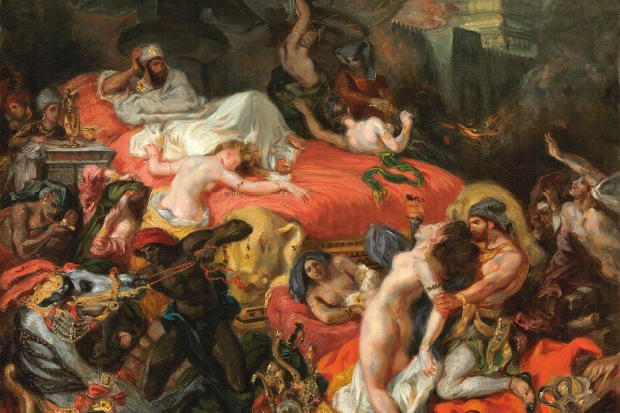Laikipia
When I was a boy in Devon we had an orchard. On a string of autumns, as the fruit ripened, the orchard became a battlefield of apples between my two brothers and me. My older siblings could launch apples at me with such force they fizzed like bullets through the air. A hit with an unripe Russet or Pippin could hurt like hell, so I became adept at dodging incoming missiles.
A childhood of scrumping came in handy this month when a mob of Samburu tribesmen attacked me. In what has become a routine activity at home these days we were attempting to prevent trespassers flooding into our farm pastures. I called the police, while the three spearmen I encountered phoned their cohorts. Quite soon about a dozen young bloods had surrounded us and instead of chucking spears they began throwing rocks at us.
Stoning, or lapidation, has in history been a popular way of killing. The Sanhedrin did it to St Stephen and in Saudi Arabia stoning is the favoured method for executing blameless female victims of rape. The thing about rocks, I discovered, and especially big ones, is that they travel more slowly than apples and so are reasonably easy to avoid, or at least most of the time. I guess that is why under sharia punishment a woman is buried up to her chest so that she can’t escape — and St Stephen knelt down and gazed up at the heavens while his murderers rained stones down upon him. If you’re running, as my stockman Jackson and I were, it’s possible to get away as long as you do not get hit in the head.
What slowed me down were my journalistic instincts, because I started filming our attackers with my mobile-phone camera. From just a few paces away one fellow launched a rock at my face. When I play back the video footage, I can see that the man hurled it with all his strength and it would have been a killer shot had it connected with my skull. Luckily, memories of that orchard — and years of trying to catch cricket balls — helped me when it counted and I raised my left hand. Miraculously, I managed to deflect the rock but I could immediately feel a warm wetness between my fingers. I looked down and saw a large gash across my bloody palm. The next second more missiles flew my way and I was hit several times on my torso and legs. Stones were also raining down on several of the stockmen. We all took off as these brutes pursued us yelling ‘kill, kill!’ It was medieval.
Seven police rocked up a few minutes later, explaining that they had been delayed by luncheon. They were all armed with rifles but as they jogged off the Samburu menaced them as well and the cops backed down. I could see the logic of this because I certainly did not want to see any more bloodshed on the farm that day. The attackers are still at large though I know exactly who they are.
The epilogue is a tale of sepsis. My injured stockman Jackson and I drove to the Catholic clinic across the plains. After dark the first rains broke following months of drought and on bush tracks we became bogged down in black cotton. Finally we arrived at the clinic and under a dim light bulb a kindly Filipino sister stitched us up. Days later my injury had begun to putrefy and I made my way to Nairobi. The trauma surgeon at the Aga Khan hospital said something along the lines of, ‘Your fingers are going to turn black and then they will have to be amputated and you will be left with a stump.’ ‘But I have a very busy week,’ I said. ‘I have meetings.’ ‘Well, you can either go ahead with your busy week of meetings — or you can let me save your hand.’ I was astonished. Since I came into this world, I have often visited hospitals to film war victims, to see my children born, or to commiserate with friends and relatives in their beds. But I always managed to avoid being admitted to these places, which scare me. Suddenly, I was stuck in there for five days, with two operations under general anaesthesia, mainlining antibiotics and floating my way through evenings of pethidine. I enjoyed the halal meals, and the nurses and doctors were incredibly sweet. I am grateful to my surgeon Mr Amer Karim for saving one of my limbs, even if he did have Simply Red playing in the operating theatre before they knocked me out.







Comments